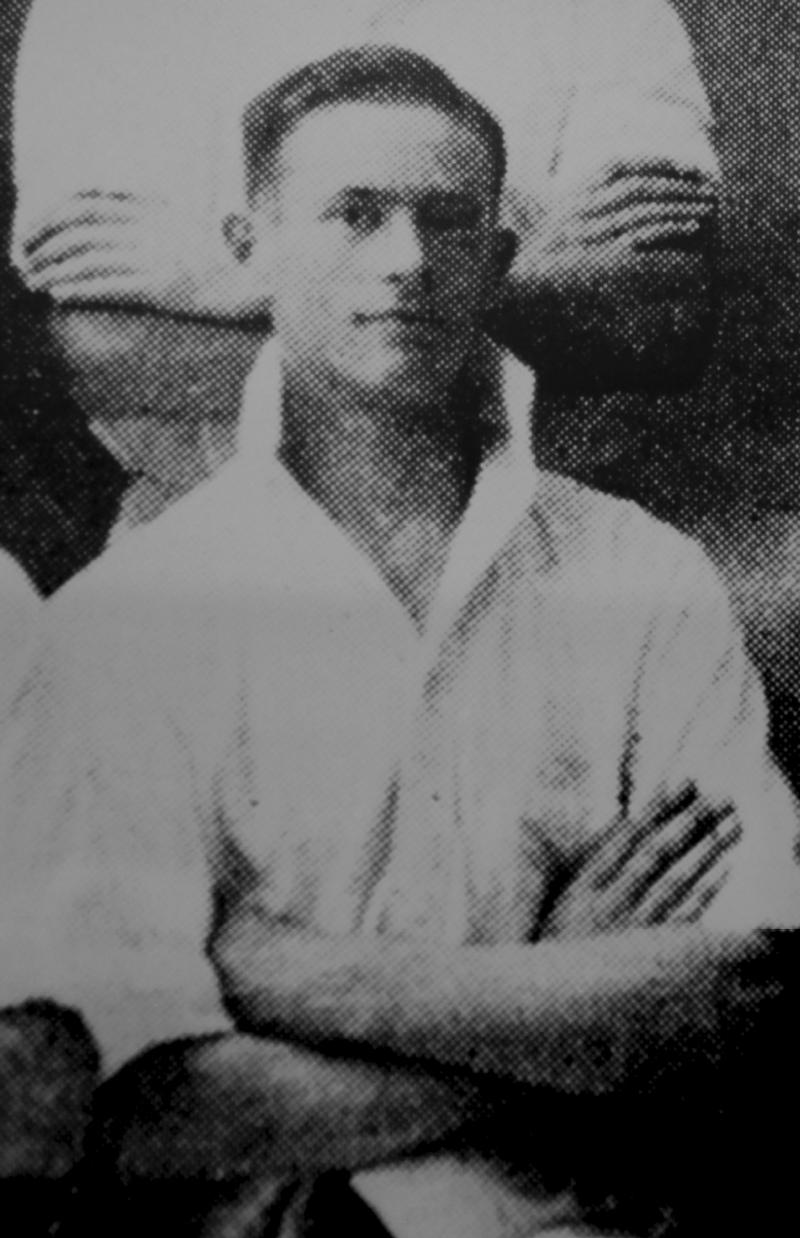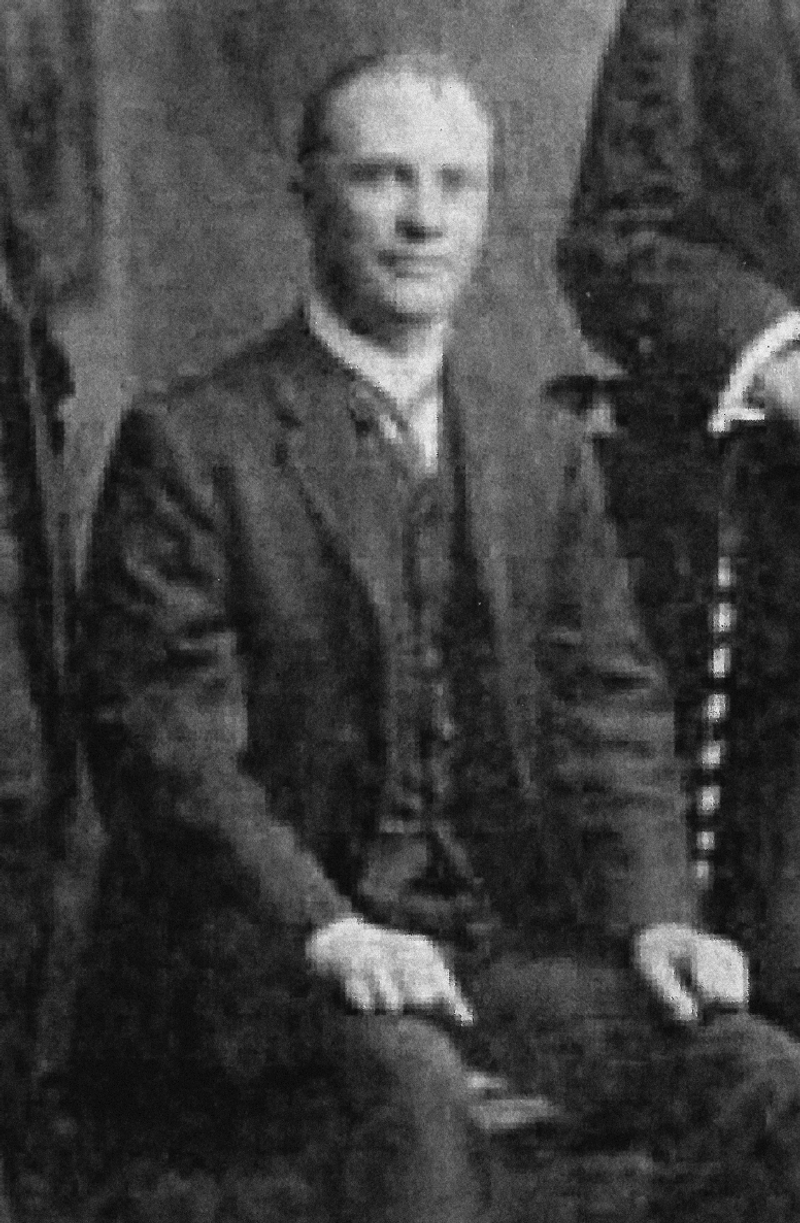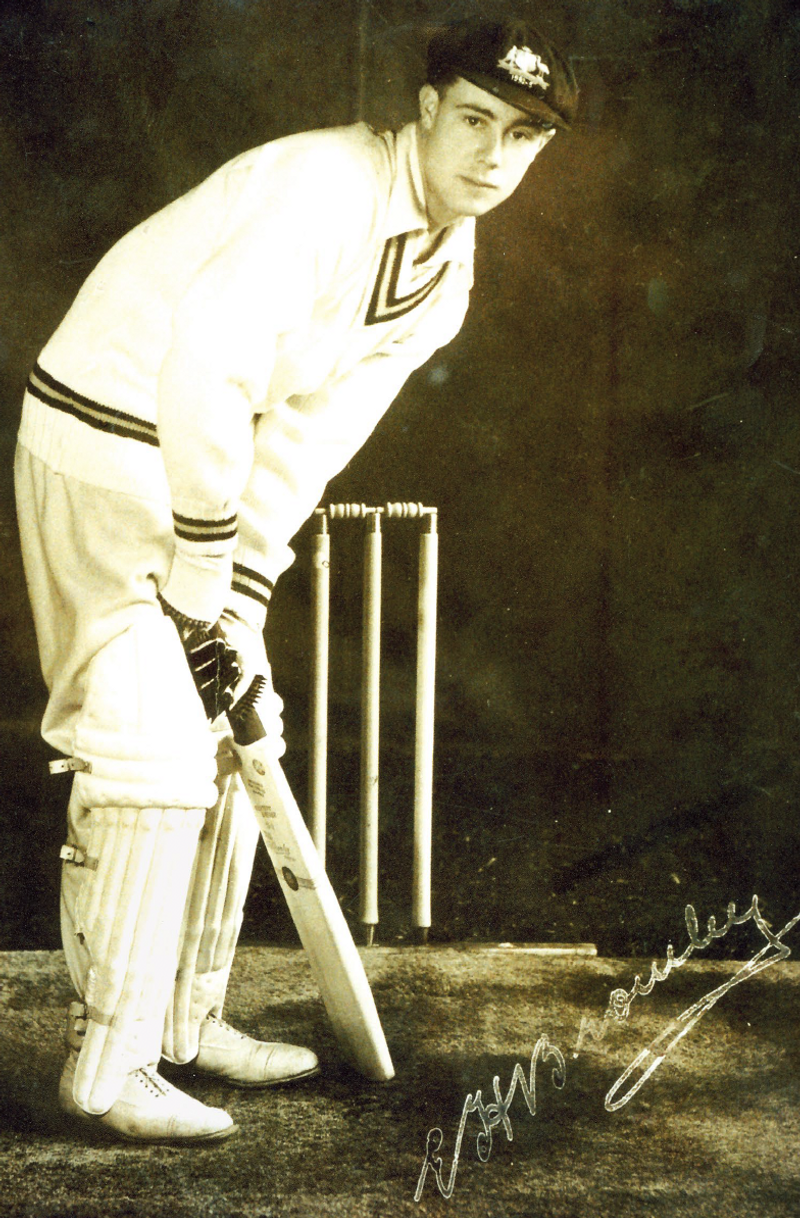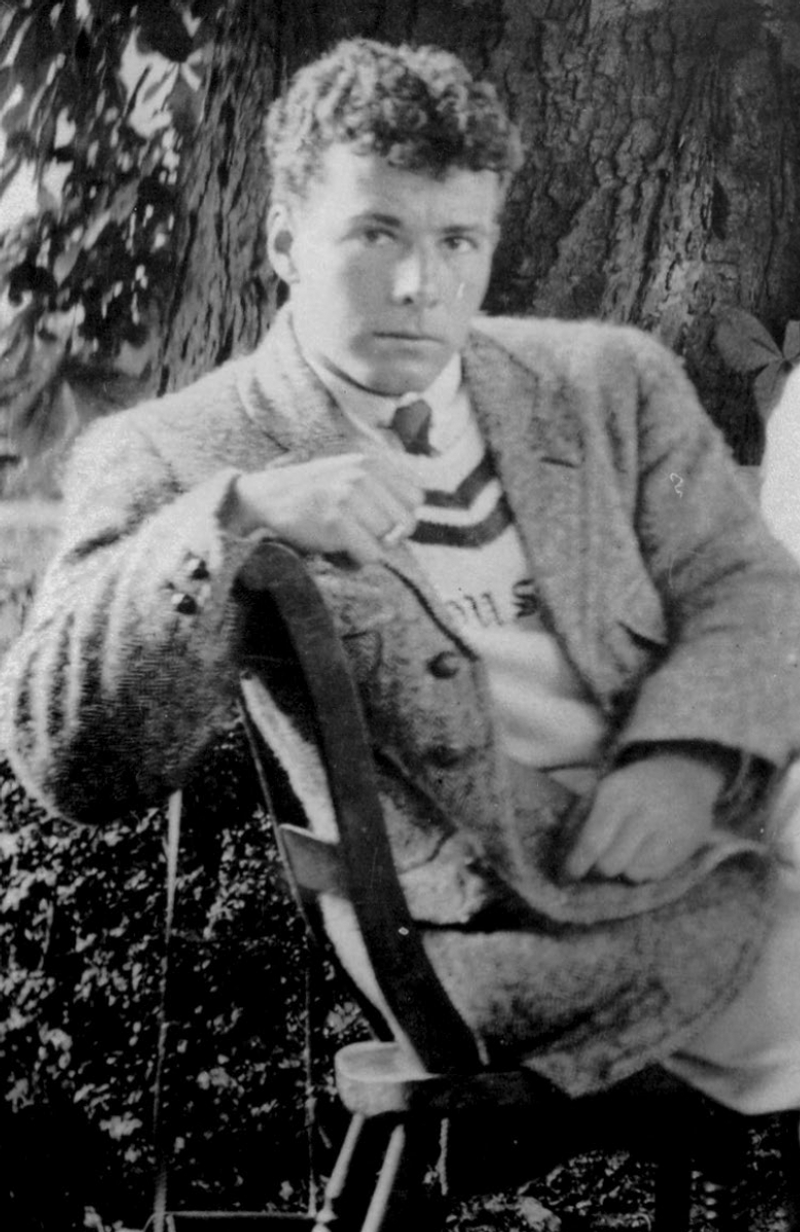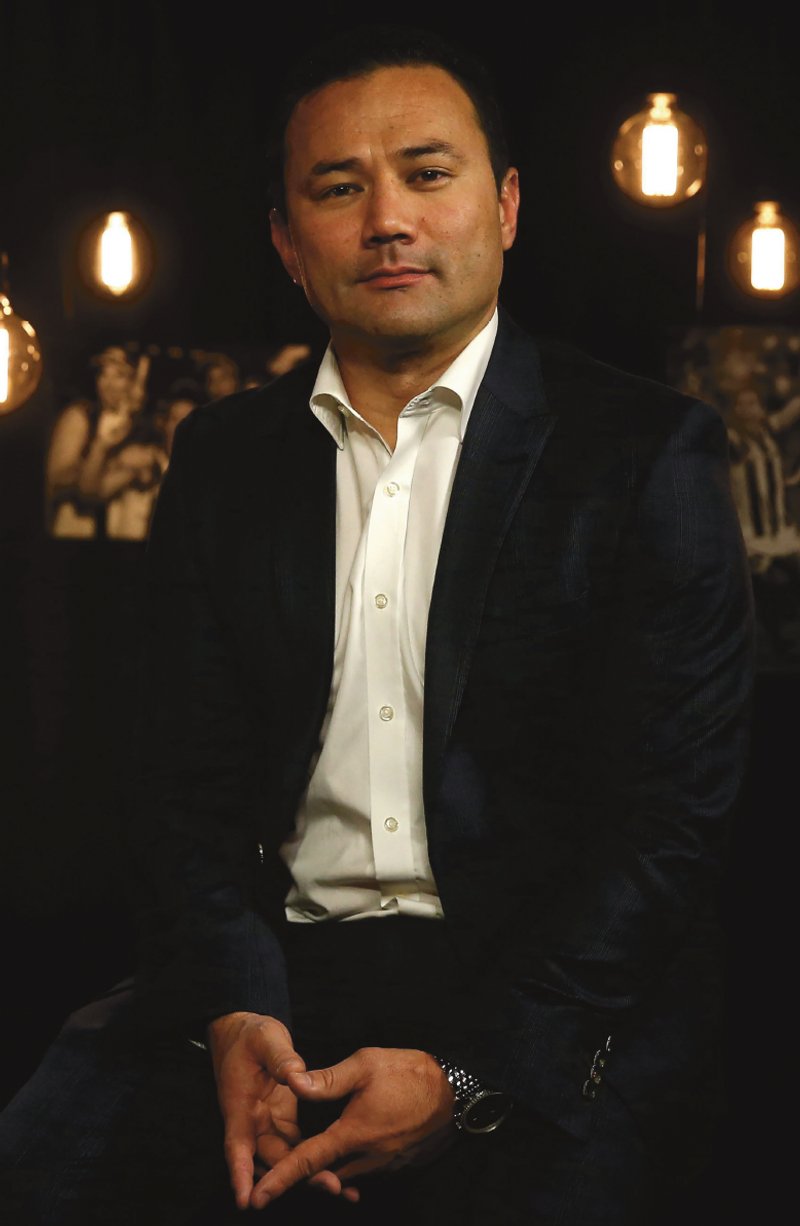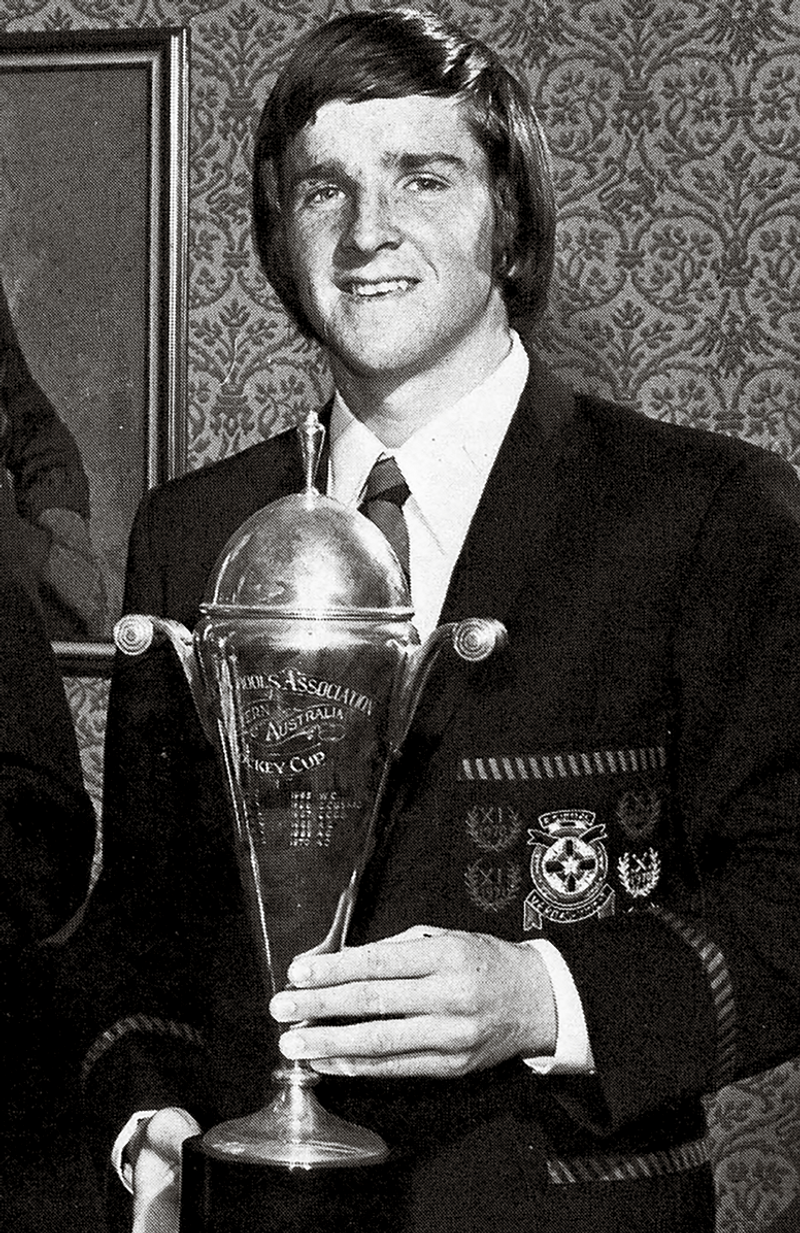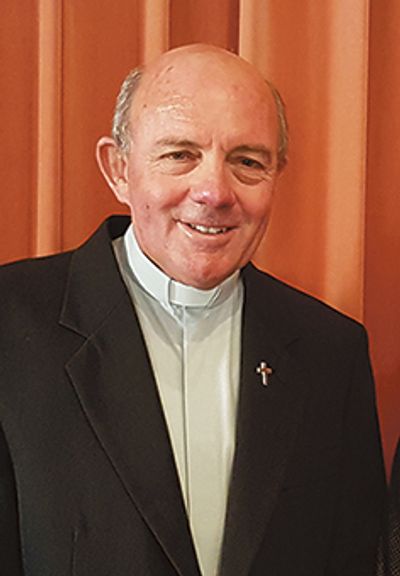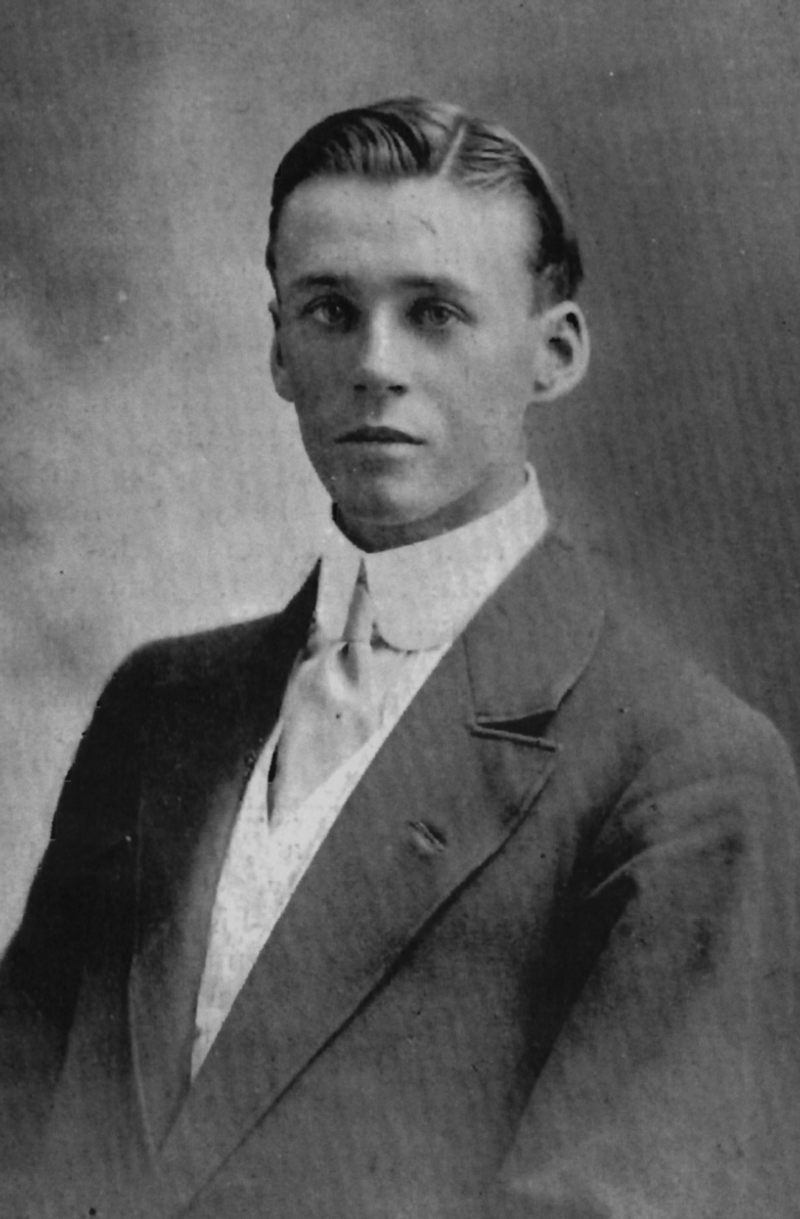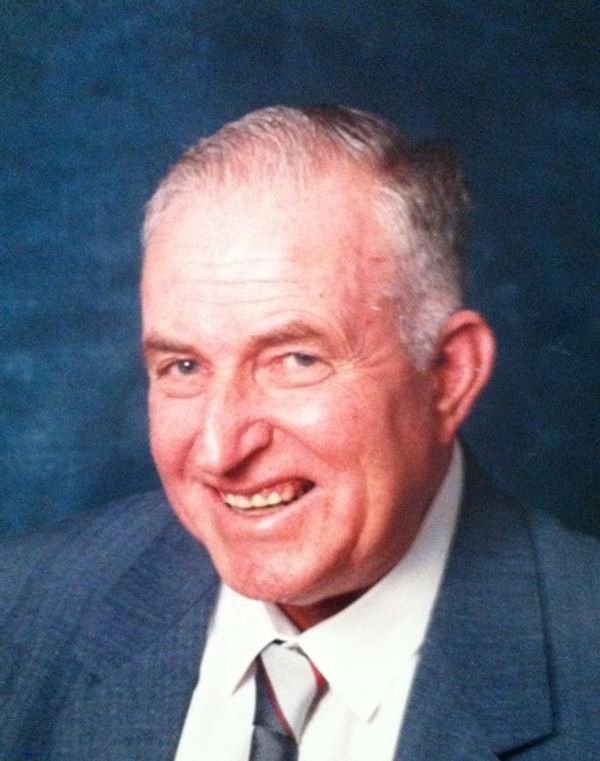Contact
Frank Joseph Bryant OAM
Class of 1927
Frances Joseph Bryant, or Frank as he was known, was a first-class, headline-grabbing cricketer who shaped the landscape of cricket in Western Australia. He was the youngest son of a cricket-loving family, with his two brothers Dick who captained the state, and Bill a prolific run-getter at his peak. He gained a place in the College XI at the age of 13 and claimed a record winning 546 runs for Aquinas in one season. Frank was a good all-rounder on and off the field. He played golf, bowls and football and was handball champion. But cricket was his first love: he captained the record-breaking team of 1927 and made over 1000 runs in Darlot Cup matches, as did his friend and peer Ernie Bromley.
Frank made a first-class debut for WA at the age of 17, in March 1927, playing alongside his brothers against South Australia at the WACA. Perth’s Daily News announced his place in the India tour squad in 1935 under the headline “Frank Bryant for India – Brilliant Career”. It reported the “unassuming and popular” cricketer “… is the possessor of a wide repertoire of strokes and he is seen at his best when in an aggressive mood. His sparkling batting has made him the centre of attraction on many an occasion”
In a series of firsts, it was the first time a WA player had toured for Australia abroad, and in another Frank and his brother Dick scored a century in WA’s first innings against Victoria, the first time brothers had done this in the same game.
After serving in the army during WWII Frank moved to Albany to run the White Star Hotel but returned to cricket to be a manager and administrator. At the time WA was not in the Sheffield Shield and Franksuccessfully argued that the state should be included. He managed the Australian teams that toured New Zealand in 1966-7, 1969-70 and 1973-74. Throughout his life, Frank campaigned for the sport successfully and played a crucial role in the granting of the WACA’s Test status in 1970.
He was awarded the Medal of the Order of Australia in 1981 and the Australian Sports medal posthumously in 2000 for his services to cricket. Frank would have approved of the manner of his passing had he but known. He died in 1984 while watching the Sheffield Shield final which WA eventually won, by two runs.
Capt. William Bryan
Class of 1898
William Thomas Bryan was the first boy to be enrolled at CBC Perth. He was one of two brothers who joined the same day in February 1894 and lived in Howick Street (now Hay Street). William’s and his brother Cyril’s were the first names to be put on the register. His father John Joseph (JJ) Thomas owned a commercial printing business, Bryan’s Print. JJ and his wife Annie Louise were some of the many small business owners who sent their children to the school in its first intake.
William was Dux in his leaving year, 1898. He took a job at the Perth Mint and soon afterwards formed an old boys group called the Old Collegians Association. William enlisted and was made a Captain in the First Australian Imperial Force. He died when a shell exploded in his trench at Messines, in Belgium on 8th June 1917 at the age of 35. William was clearly loved by all who knew him. The eulogy his brother wrote in the Western Mail and the WA Record was filled with emotion for the passing of his brother. He wrote: “I have beared my heart…so that in the time to come his children may read of the anguish that wrung the hearts of those whose greatest pride was that we owned their father as our brother”.
A letter to Archbishop Clune published in the 1917 Annual said of William: “…he was beloved by all of the other officers in the battalion… the Colonel to the youngest private in the battalion lost a very dear and true friend when Captain Bryan was killed.”
Ernie Bromley
Class of 1928
Ernie “Brom” Bromley will be forever remembered at the College as the first Aquinian to play Test Cricket and the first WA-born cricketer to play for Australia. He was, according to The Sunday Times of 1933, a “…forceful and punching left-hand batsman, a good bowler and a splendid fieldsman.”
Ernie was born in Fremantle and went to the Fremantle Boys’ School, he was subsequently recommended to CBC Perth by one of the Brothers. He was a significant force in the Aquinas Cricket XI and played 1st-grade cricket for Fremantle. During his time at Aquinas he scored 834 runs at an average of 37.9, including a memorable 146 against Scotch College.
When he left school, Ernie headed for Victoria and played for the state and St Kilda. In 1934, the year after the famous “Bodyline” series, Ernie was selected in the Australian squad to tour England. On returning to the College to a hero’s welcome that year, Ernie promised “to do his very best” to uphold the traditions of his “Alma Mater”.
Bill Brown, one of the “1948 Invincibles”, told Br Clery in 2006 “Ernie could catch anything. Whenever he returned the ball from the outfield, three to four men had to back up, so strong was his arm”. When playing against “Gentleman of England” in a 1934 tour the English captain asked him to move away from his fielding position a metre or two from the batsman. “She’ll be right”, replied Ernie, before taking a catch a couple of balls later.
Ernie married Elizabeth Winchelsea from Geelong in 1946. He died too young at the age of 54 in 1967, but he will always hold a unique and proud place in the history of Aquinas College and West Australian cricket. In 2004, Ernie was inducted into the Fremantle Sporting Wall of Fame.
Lt Alaric Pinder Boor
Class of 1912
Alaric Pinder Boor, son of a draper from Carnarvon, was a giant amongst men in nearly everything he touched: sport, academia and socially as a person, he was a natural role model. In his journey through school, he impressed those he worked with and competitors equally. As Captain of both the Football and Cricket teams and as champion in Boxing and Gymnastics his opponents frequently commented on his sense of fairness and sportsmanship.
As Head Prefect and Dux of the College, he also made time to mentor young students. He even captained the Inter-School Tug-of-War team. Pinder won a Rhodes Scholarship to study at Oxford, with the intention of becoming a doctor. He was universally liked and admired.
Lieutenant Boor fought during WWI in the 7th Battalion Oxfordshire and Buckinghamshire Light Infantry and was attached to the No. 113 Squadron Royal Flying Corps. He played a crucial role in the memorable Battle of Beersheba on 31st October 1917. On his last day on earth, Lt Boor led a reconnaissance mission flying an RE8 aircraft over German and Turkish troops in Palestine to gauge the strength of the enemy. He took off at 0830 and, tragically, crashed on the return along with his co-pilot.
Engine failure was the probable cause. Ironically, he never knew that the charge his troops went on to fight later that day was one of the “last great cavalry charges in military history”. His commanding officer summed him up when writing to his parents after his death: “With the very deepest sympathy for you who had so grand a man for a son. Believe me.”
During his time at CBC on the Terrace, Pinder exploited the opportunity to learn and make a difference to the full. He claimed academic and sports’ honours in equal measure. However, it was his sense of fairness and his ability to lead that made him stand out from the pack.
The Pinder Boor Boarding House at Aquinas College is named in his honour.
When he died in 1917 the Head Boy of Scotch College sent a letter to the school noting Pinder Boor was: “a scholar and athlete… an opponent regarded with affection and respect by all who came in contact with him… the best sportsman in the true meaning of the term.”
Alaric Pinder Boor was an outstanding all-rounder who made an impact on whomever he encountered.
Peter Bell
Class of 1993
Son of a Korean mother and an American father, Peter was adopted at the age of three by an Australian couple who were working in South Korea as missionaries. They returned to Western Australia and settled in Kojonup to set up a farm management business. Peter was one of seven children and did not realise he was adopted until he was nine. At the age of 10, something he did discover was his love of football and his promising skills to match. An early trauma in his football career was breaking his leg at the tender age of 13. As if that wasn’t bad enough, his mother, a trained vet, spotted it was badly set and that it had to be broken again to be reset.
At 15 years of age, Peter came to Aquinas as a boarder and entered the world of state football teams. His leg healed in spite of a second break and he began to show incredible promise on the football field. Peter’s sporting career has since been a roller coaster with some spectacular highs and lows.
Voted Best and Fairest at South Fremantle in 1994, he was one of the first players to be signed by the Fremantle Dockers as it entered the AFL the following year. In spite of kicking two goals with his first two kicks in AFL football, the coach did not rate him and he was selected for only two games in 1995. It seemed incredible to him at the time that he was the first player signed with Fremantle and the first player sacked!
In between selections he studied and graduated Law, but it was really a way of marking time before his next selection in AFL football. This came quickly from North Melbourne on the cusp of premiership glory when coach Dennis Pagan selected him the following year after introducing him to the selectors as “his cousin Ricky from Wangaratta” to keep his identity a secret. He was asked back to the Dockers in 2000 where he was captain for five seasons. He was awarded three Doig Medals and in 2006 awarded the Ross Glendinning Medal, before retiring in 2008.
Subsequently, he was offered and accepted a position on the board of the Dockers. Recently, after years of success in the media and public speaking, he stepped down from the board and became the General Manager of the Fremantle Dockers. On being appointed, he spoke of the importance of relationship building and being the best that you can be. He also mentioned the importance of the “whole player” and what they do off the field to contribute to society.
David Bell
Class of 1972
Among the sporting legends of the school is the second of four brothers, Olympian and World Cup winner on the hockey field David Bell. He describes himself modestly as academically “sound” (good enough for a Commonwealth Scholarship), “but not stellar”. Although he captained both the Cricket and the Hockey teams in his last year at Aquinas in 1972, it wasn’t until after a few more years playing at club level that he finally made the choice between cricket and hockey. As Captain of the Australian Under 19 team, he could easily have continued to play cricket for Australia. However, he picked hockey, playing at state level and then selected for the Australian championships. His talent on the hockey field defined his career. Blessed with ambition and ability he entered into the national arena on a World Cup cycle, playing in four: Kuala Lumpur (1975), Buenos Aires (1978), Mumbai (1982) and captaining the team that won in London in 1986. He also played in two Olympics: Montreal in 1976 (won Silver) and Los Angeles in 1984. (It would have been three had Australia not boycotted the 1980 Moscow Olympics). His Olympic Silver medal is not on display in a glass case so much as lying in a shoebox in the pantry. Like many highly talented Aquinians, he gets in, does the job and is not showy about it.
After winning on the hockey field, unsurprisingly, David has been in high demand globally as a coach. He led the Australian Women’s team to Athens in 2004 and in 2016 took the Indian Women’s team to Rio. He trained as a Physical Education teacher post World Cup but returned to Aquinas to coach hockey in 2014 and 2015.
Looking back still fit and enjoying an ongoing relationship with his sport, he has two observations to make: “You can teach people from experience and share it, but you can’t give the answers - people have to find their own answers”. He attributes the breadth of education he received at Aquinas to the Brothers and a proud moment for him was over-hearing his son saying: “The best
Bishop Michael Morrissey
Class of 1969
Born on Noongall Sheep Station in Yalgoo near Geraldton as the first boy, but second of five children, Michael Morrissey boarded at Aquinas for seven years. Armed with a love of reading Michael showed an early passion for the Church. His mother recalls that his calling for the Church showed itself early as he would round up the local children for Mass which might happen once a fortnight or once a month as Church was about 30kms from Yalgoo and the priest would come from Mullewa or Mt Magnet. Even as a very young person he really enjoyed going to Mass.
Michael left Aquinas College after his final year in 1969 and his mother remembers his calling to the priesthood did not come as a surprise. She is not alone in saying: “I think it was his nature. Some people are born to be certain things, and, Michael was born to be a priest.” Growing up on a station young Michael was home taught on the station, barefoot and in a class of only three: his brother, his sister and himself. But he recalls his mother ran a tight ship and adhered to regular hours and lessons.
Not surprisingly, therefore, Year 1 at Aquinas where he was suddenly thrust into a class of 43 boys, was a foreign experience. He found it “exciting and a bit traumatic”. By Year 9 it began to feel more like home and he recalls that academically things fell into place and he was very happy at school.
On discovering he was not a natural athlete or swimmer, Br Worner put young Michael in charge or organising the Swimming Carnival. He found he rose to organisational challenges easily. While at Aquinas he was one of four St Vincent de Paul Society “Leaders” featured in the Annual of 1969.
The strong need within him to help others was something he found grew stronger while at the school. By the time he had reached Year 11 he felt he could speak to one of the brothers about it and did so.
Michael was the first person from Geraldton to be brought up there and eventually become a priest for the region. At his ordination in St Francis Xavier Cathedral, Geraldton in 1981 his mother Margaret said: “He has dedicated his life to God and his pastoral work, and I cannot be happier for him. It is a very special occasion for all of us.”
His lasting memory of Aquinas was somewhere he learned: “It was important to show respect and value what you received. More than this it is important to show it by doing something for someone else.”
Lnce Corp Herbert Appel
Class of 1911
Lance Corporal Herbert Johansen (HJ) Appel was another young, brilliant Aquinian who paid the ultimate sacrifice for his country on the battlefields of Europe. He was the only son of Mr and Mrs Jens Appel of Subiaco. Herbert was remarkable in the way he charmed all who knew him, teachers and students, alike. He studied at CBC Perth for seven years and made his mark academically when he topped the list in the West Australian and South Australian Junior examinations and passed the senior examinations with two distinctions.
Herbert was College Prefect for three consecutive years from 1909 and won the Durack Medal, received by the Dux of the College, in 1911. He was also a candidate for the Rhodes’ Scholarship. As an athlete, Herbert shone in both football and cricket. He was a member of the 1st XVIII Football and 1st XI Cricket 1909 premiership teams. He distinguished himself by making the highest score of the season with 138 against Hale and had the record of the greatest hit of a cricket ball at the College, hitting from the turf wicket and sending the ball to the roof! Nearly hitting the tower. He played for Subiaco Football Club during 1910 and 1911.
On leaving, he sat the Government Surveyor’s Examination and his name “figured first”. Herbert was a third-year university engineering cadet aged 23 when he was called up to join the war effort in August 1915. He served in France for two years as a Lance Corporal with the 6th Field Company Australian Engineers. He tragically died on 19th September 1917, aged 26.
Herbert had served at Poperinghe “Pops” and was buried in the Lijssenthoek Military Cemetery Flanders in Belgium for soldiers who had been wounded near Ypres and who later died in the large Allied casualty clearing stations in that area.
Geoffrey Thomas John Cowcher
Geoffrey (Geoff) Thomas John Cowcher, our most recent initiate to the Veritas Society, was born in Narrogin on 23 December 1938, the sixth child of William and Ellie Cowcher of Williams.
At the age of eight, Geoff attended the Katanning Convent School, followed by several years at the local Quindanning School, before attending Aquinas College for three years during his high school years.
Following school, Geoff returned to the family farm and was involved in sheep and cropping activities. He also spent quite a lot of time catching rabbits. Later he turned to pig farming and was very proud of the fine animals he produced.
At the age of 25, Geoff sought to join the Christian Brothers who he greatly admired from his time at Aquinas, travelling to Tardun to pursue his faith journey. Unfortunately, due to health problems that plagued him throughout his life, he was unable to fulfil his dream, returning to the family farm once again until his father passed away in 1978.
Following his father’s death, Geoff and his mother moved to Mandurah where the Church became the focal point of Geoff’s life and it was here he made many lifelong friends.
Despite being unable to play any sport due to severe back problems, Geoff loved his sport, supported many of his family members who were keen sportsmen with interest. He loved to follow the football at all levels and was a shrewd punter who followed the horses and always enjoyed a small bet.
As Geoff’s health deteriorated, he moved into Aged Care in Mandurah, living there until he passed away in January 2014.
Geoff remained proud of his Aquinas College links throughout his life – willing a portion of his estate to the school – and came from a long line of Aquinians dating back more than 100 years. His father, William, was a successful scholar at CBC on the Terrace in the early part of the 20th Century, whilst Geoff and his three brothers, Neil, Bruce and Max, all attended Aquinas College in the 1940s and 1950s. Geoff was followed by 8 nephews and 11 grandnephews, two of whom are current students, Sam and Joshua Cowcher, not to mention a plethora of other Cowcher relations with connections to the College.
Four generations of Cowchers have now graced the grounds of Aquinas College. The College and the Foundation thank Geoffrey and his family for their generous and ongoing support of the Aquinas and we look forward to welcoming a fifth generation of Cowchers at the College in the years to come.
